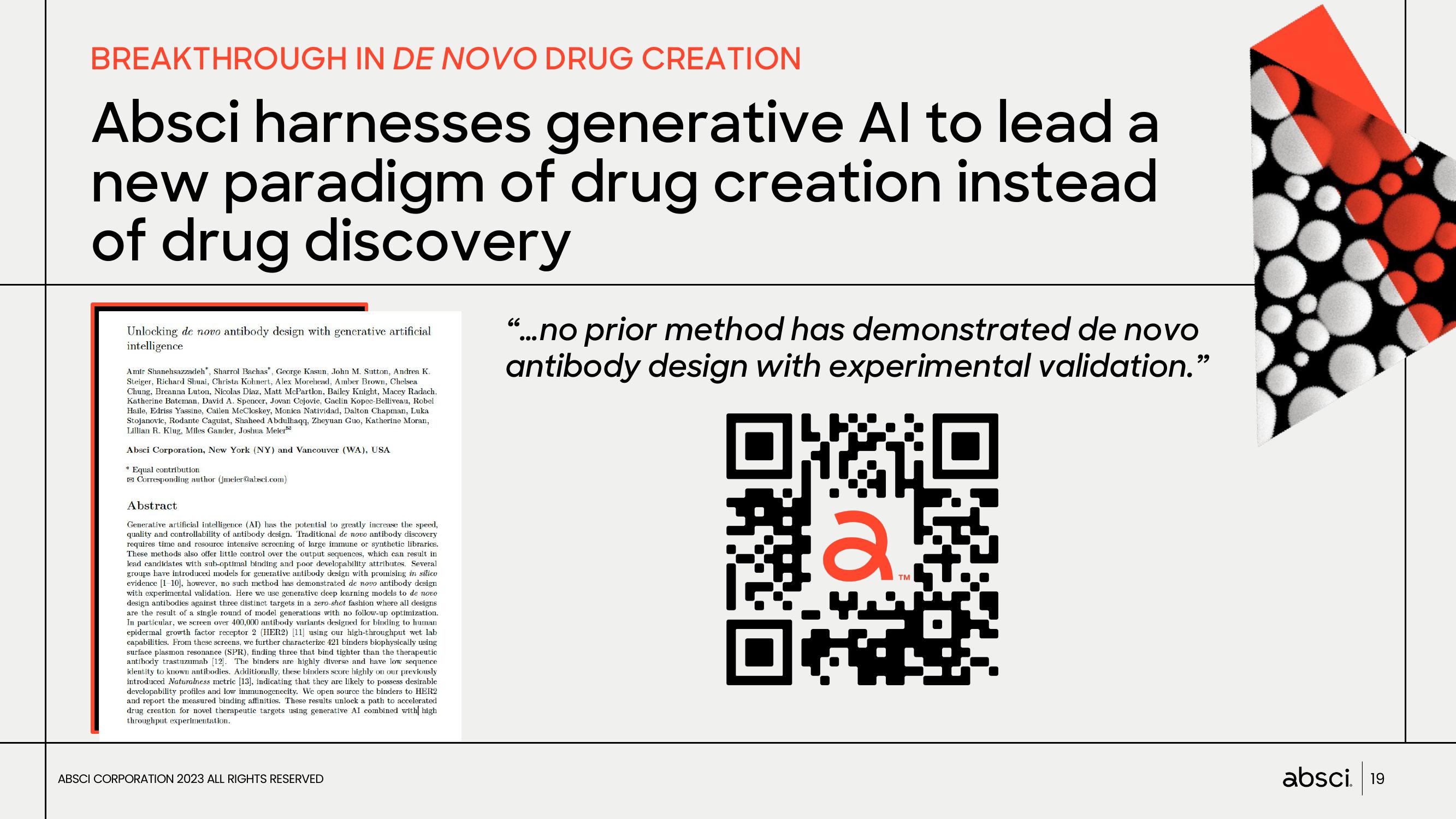Absci Investor Presentation Deck
BREAKTHROUGH IN DE NOVO DRUG CREATION
Absci harnesses generative Al to lead a
new paradigm of drug creation instead
of drug discovery
Unlocking de novo antibody design with generative artificial
intelligence
Amir Shanehsazzadeh*, Sharrol Bachas*, George Kasun, John M. Sutton, Andrea K.
Steiger, Richard Shuai, Christa Kohnert, Alex Morehead, Amber Brown, Chelsea
Chung, Breanna Luton, Nicolas Diaz, Matt McPartlon, Bailey Knight, Macey Radach,
Katherine Bateman, David A. Spencer, Jovan Cejovic, Gaelin Kopec-Belliveau, Robel
Haile, Edriss Yassine, Cailen McCloskey, Monica Natividad, Dalton Chapman, Luka
Stojanovic, Rodante Caguiat, Shaheed Abdulhaqq, Zheyuan Guo, Katherine Moran,
Lillian R. Klug, Miles Gander, Joshua Meier
Absci Corporation, New York (NY) and Vancouver (WA), USA
*Equal contribution
Corresponding author ([email protected])
Abstract
Generative artificial intelligence (AI) has the potential to greatly increase the speed,
quality and controllability of antibody design. Traditional de novo antibody discovery
requires time and resource intensive screening of large immune or synthetic libraries.
These methods also offer little control over the output sequences, which can result in
lead candidates with sub-optimal binding and poor developability attributes. Several
groups have introduced models for generative antibody design with promising in silico
evidence [1-10], however, no such method has demonstrated de novo antibody design
with experimental validation. Here we use generative deep learning models to de novo
design antibodies against three distinct targets in a zero-shot fashion where all designs
are the result of a single round of model generations with no follow-up optimization.
In particular, we screen over 400,000 antibody variants designed for binding to human
epidermal growth factor receptor 2 (HER2) [11] using our high-throughput wet lab
capabilities. From these screens, we further characterize 421 binders biophysically using
surface plasmon resonance (SPR), finding three that bind tighter than the therapeutic
antibody trastuzumab [12]. The binders are highly diverse and have low sequence
identity to known antibodies. Additionally, these binders score highly on our previously
introduced Naturalness metric [13], indicating that they are likely to possess desirable
developability profiles and low immunogenecity. We open source the binders to HER2
and report the measured binding affinities. These results unlock a path to accelerated
drug creation for novel therapeutic targets using generative AI combined with high
throughput experimentation.
ABSCI CORPORATION 2023 ALL RIGHTS RESERVED
"...no prior method has demonstrated de novo
antibody design with experimental validation."
Oxat
K
TM
Y
absci. 19View entire presentation